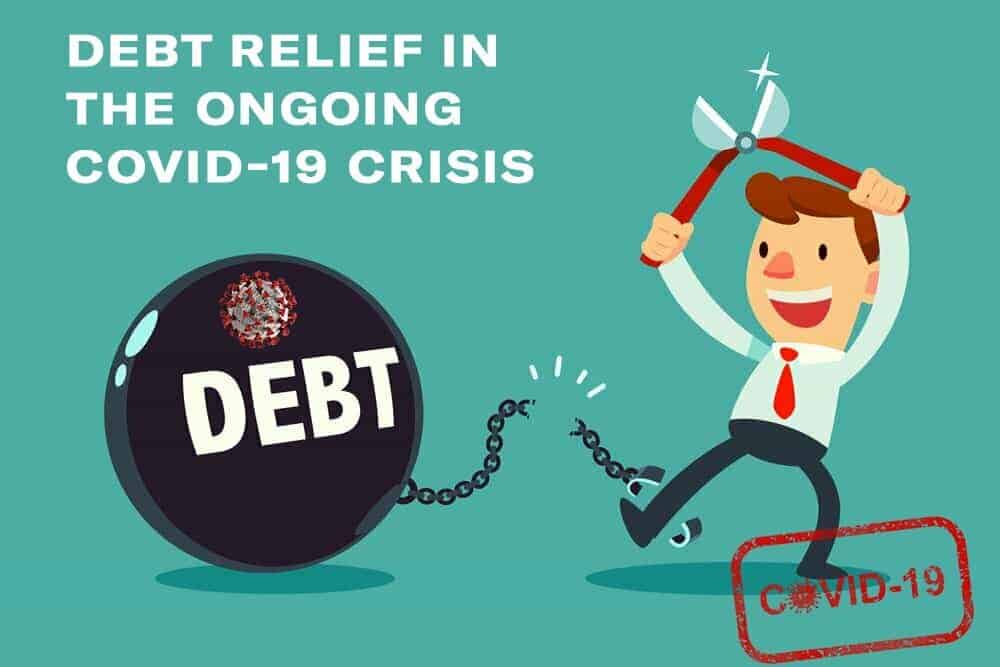In April of last year, the COVID-19 epidemic caused the country’s jobless rate to soar to 14.7 percent. By June 2021, it had reduced to 6%, although it was still significantly higher than the pre-pandemic 3.5 percent. Thankfully, the federal and state governments, as well as different corporations, continue to provide financial assistance to the general public in the United States.
If you’re wondering if you can get debt relief at this point in the COVID-19 issue, realize that assistance is still available for a variety of situations.
Homeowners will be relieved.
If you’re having trouble making your mortgage payments, you might want to seek forbearance. You don’t need to produce any additional proof to qualify; all you have to do is tell your mortgage provider that you’re having financial difficulties as a result of the epidemic. You won’t have to pay any further interest, fees, or penalties in most circumstances.
There is no deadline for requesting forbearance if your loan is backed by Freddie Mac or Fannie Mae. The current deadline for obtaining forbearance for loans supported by the VA, USDA, or HUD/FHA is September 30th, 2021.
Renters are getting some relief.
Most evictions have been halted by the Centers for Disease Control and Prevention (CDC). This may allow you to remain in your current rental home. Housing assistance is available from the federal, state, and local governments to help people avoid eviction and meet their housing costs. If your landlord is currently in mortgage forbearance, you may be able to escape eviction.
Debt from credit cards and other forms of personal credit
Several banks and financial institutions across the United States continued to offer relief to impacted consumers in the form of lower interest rates, lower monthly repayments, and late fee waivers during the first few months of the pandemic. However, it appears that most of this help is now dwindling. Calling your creditors or checking their websites is the easiest approach to find out if you might be eligible for assistance.
Students are relieved.
COVID-19 Emergency Relief Flexibilities on federal student loan interest and collection on all defaulted debts under the Federal Family Education Loan (FFEL) Program are now scheduled to last through September 30, 2021. At this point, it’s anyone’s guess whether students would benefit from an extension. Determine whether you would benefit from legal advice if you have taken out a private student loan.
Federal Government Relief
The federal government has given states the authority to change their laws in order to provide benefits to people whose jobs have been impacted by the COVID-19 situation. When it comes to unemployment compensation, the American Rescue Plan Act of 2021 has temporarily permitted the following:
- Individuals who have been receiving unemployment benefits have been granted extensions.
- Anyone who qualifies for unemployment benefits will immediately receive an extra $300 each week.
- The Pandemic Unemployment Assistance (PUA) program will provide an extension to gig workers and self-employed individuals.
Checks for Stimulus
Individual tax filers received their last stimulus payout of $1,400 in March 2021. While a fourth is being discussed, no one knows when or if it will happen.
Tax Credit for Children
The Child Tax Credit (CTC) is paid in six installments straight into the bank accounts of qualifying parents. While it is not required that you have filed your taxes, you must meet certain income requirements. If you qualify, each child between the ages of 6 and 18 will get $250 per month, and each child under the age of 6 will receive $300 per month. From July to December, payments will be made on a monthly basis.
Conclusion
Being able to discern the genuine from the scammers is critical, and the Federal Trade Commission (FTC) has issued a fraudsters alert as a result of the support from various sources. If you’ve already attempted debt relief – such as mortgage forbearance or reduced credit card payments – and are still having trouble managing your finances, contact a debt relief attorney. This will allow you to better prepare for what the future may hold.

